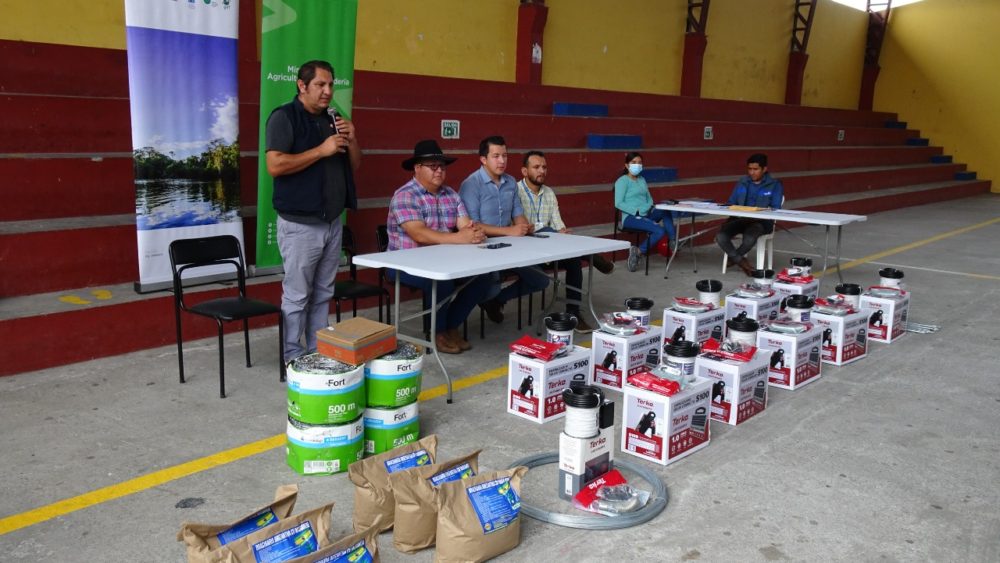During the month of July, at the end of the educational modules of the Sustainable and Deforestation-free Livestock Schools, 1,703 people from the Ecuadorian Amazon received non-monetary inputs to technify their production. The National Government, the United Nations Development Programme (UNDP) and the Tropical Agricultural Research and Education Center (CATIE), through PROAmazonía, delivered the inputs to producers in Zamora Chinchipe, Morona Santiago, Pastaza, Napo, Orellana and Sucumbíos.
The provision to producers consisted of solar panels and electric fences, tools that support techology transfer to achieve productive efficiency and avoid the expasion of the agricultural frontier. This in order to conserve forests and contribute to sustainable economic, social and environmental development
Along these first six months of 2022, the producers in the Field Schools learned about farm planning, pasture management, soils, establishment of forage banks, feeding in critical periods, nutritional blocks, animal health, genetics, milking, ecosystem services of forests and the importance of the mechanism of Reducing Emmissions from Deforestation and Forest Degradation (REDD+).
With this initiative, the Ministry of the Environment, Water and Ecological Transition (MAATE), the Ministry of Agriculture and Livestock (MAG) and UNDP through PROAmazonía intervene in 51,537 hectares, of which, 28,950 are in transition to sustainable and deforestation-free production. Additionally, 5,899 hectares of silvopastures and 462 kilometers of live fences are intervened.
The implementation of silvopastures in the Amazon is a practice that is being observed throughout the region. Its implementation has major impacts to mitigate climate change and increase producers’ profits.
“Working together with all the stakeholders in the livestock chain is bearing fruit. In this cycle of Field Schools we have had a great acceptance to the announcement. Now, at the end of the training, we observe how the producers show their commitment and are recognized with this delivery of non-monetary inputs,” said Juan Francisco Bermeo, sustainable livestock specialist of PROAmazonía.
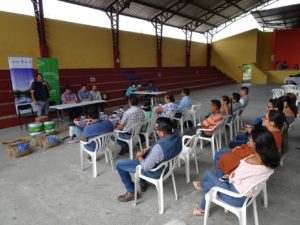
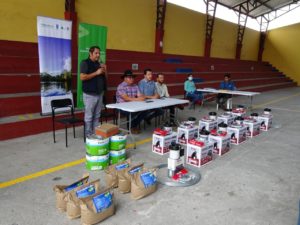

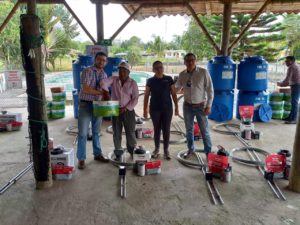
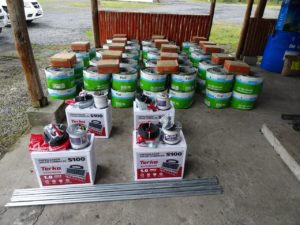
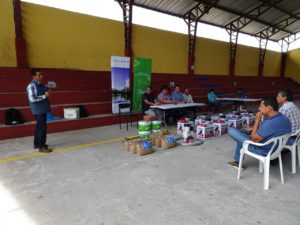
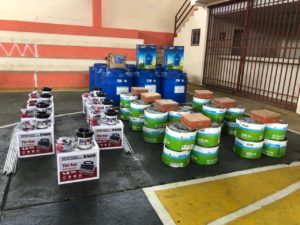
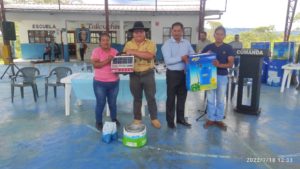 .
. 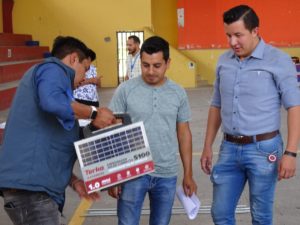
 Español
Español English
English
